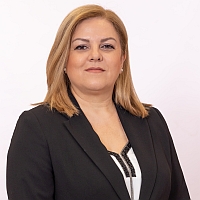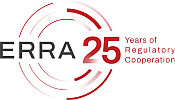

ERRA Secretariat: Dear Ms. Nelkova-Chuchuk, congratulations on your election as the new Chair of the Association. Having worked with you for many years within the ERRA Committees framework as well as the ERRA Presidium, we are convinced that your leadership in ERRA will align with its mission, vision and the long-term goals. We look forward to cooperating with you. Please give us the 3 most important priorities that will determine your first term as chair of ERRA.
Ms. Andrijana Nelkova-Chuchuk: Thank you. As the new Chair of ERRA, in the focus of my two-year term will be the continuous growth of the Association in every aspect and in accordance to the recently adopted 2025-2030 ERRA Strategy. One of the main priorities in the following period is to maximise the benefit of the main and unique asset that ERRA has - the diverse experience of countries from different regions in the implementation of the best regulatory practice. We will focus on advancing the regulatory practices through strengthening the regulatory framework for an efficient, reliable, and sustainable energy transition. The rapid changes in the energy sector require appropriate regulatory policy and we will work on ensuring that regulatory environments are conducive to long-term, green investments. ERRA will continue to contribute, to adapt to the needs, and to play a significant role in shaping the future of energy regulation in the member countries.
ERRA Secretariat: Which are the most critical challenges facing ERRA member regulators in the nearest future? How do you think the Association can assist in overcoming them?
Ms. Andrijana Nelkova-Chuchuk: Adapting the regulatory frameworks in the evolving energy landscape is a critical challenge that regulators face. Development and integration of renewable energy sources is an issue that marks the work of the regulators and will continue to be on the agenda in the following years. Emerging technologies like energy storage, electric vehicles, smart grids, along with the enhanced need for digital transformation and increased cybersecurity measures to protect the critical energy infrastructure are challenging topics for the member regulators. Insight into the need for new developed market designs to facilitate flexibility, competitiveness, and consumer empowerment can also help regulators creating the regulatory framework. Nuclear power, as the recent ERRA Nuclear Energy Regulatory Forum in Warsaw has shown, will also play an important role as a clean baseload source, for which the role of energy regulators is clearly to be elevated.
By addressing these challenges, I strongly believe that the association will continue to contribute to adding value to its members via capacity development of the regulatory staff and facilitating cooperation among regulators from various jurisdictions.

